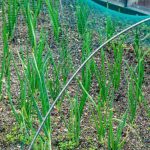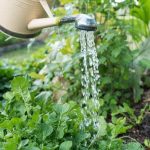Are you interested in gardening in South Florida and growing your own vegetables? When it comes to gardening in South Florida, the warm climate and rich soil provide the perfect conditions for a variety of vegetables to thrive. Whether you’re a seasoned gardener or just starting out, learning about the specific requirements and best practices for gardening in South Florida is essential for a successful harvest.
In this article, we will explore the benefits of growing vegetables in South Florida, discover the best vegetables to grow in this region, learn about the ideal growing conditions, and provide tips for successful gardening. We will also discuss how to deal with common pests and diseases that may affect your vegetable garden, as well as how to care for and harvest your produce.
Additionally, we will highlight community resources and events that can support and inspire South Florida vegetable gardeners.
With the right knowledge and techniques, you can enjoy a bountiful harvest of fresh, nutritious vegetables right from your own backyard. Let’s dive into the world of gardening in South Florida and discover everything you need to know to get started on your own vegetable garden journey.
Benefits of Growing Vegetables in South Florida
There are numerous benefits to growing vegetables in South Florida, a region known for its warm climate and ample sunshine. Whether you’re an experienced gardener or just starting out, there are many advantages to cultivating your own produce in this area.
First and foremost, growing your own vegetables allows you to have access to fresh, organic produce right at your fingertips. You can avoid the pesticides and chemicals often found in store-bought vegetables, making it a healthier option for you and your family. Additionally, homegrown vegetables tend to be more flavorful and nutrient-dense compared to those that have been shipped long distances.
Another benefit of gardening in South Florida is the ability to save money on groceries. By growing your own vegetables, you can significantly reduce your grocery bill while also ensuring that you have a steady supply of fresh produce throughout the year. This can lead to substantial savings over time, especially if you grow a wide variety of vegetables.
Lastly, gardening in South Florida provides a sense of satisfaction and fulfillment. There is something deeply rewarding about nurturing a seed or seedling into a healthy, thriving plant that produces an abundance of delicious vegetables. It can also be a great way to relieve stress and improve mental well-being as you connect with nature and enjoy the fruits of your labor.
- Access to fresh, organic produce
- Savings on grocery bills
- Satisfaction and mental well-being
Best Vegetables to Grow in South Florida
When it comes to gardening in South Florida, vegetables that thrive in the warm and humid climate are the best choices for a successful harvest. Here are some of the best vegetables to grow in South Florida:
- Tomatoes: Tomatoes are a popular choice for South Florida vegetable gardens due to their versatility and ability to thrive in the region’s climate.
- Peppers: Both sweet and hot peppers, such as bell peppers and jalapenos, do well in the warm and sunny conditions of South Florida.
- Green Beans: Green beans are an easy-to-grow vegetable that can handle the heat and humidity of South Florida summers.
- Squash: Varieties such as zucchini and yellow squash tend to flourish in South Florida’s warm weather, making them a great addition to any garden.
In addition to these vegetables, other options that have been found to be successful for gardening in South Florida include eggplant, okra, and cucumbers. These vegetables not only tolerate the climate but also provide home gardeners with a bountiful harvest throughout the growing season.
For anyone considering starting a vegetable garden in South Florida, these recommendations provide a great starting point for selecting crops that will thrive in the region’s unique environmental conditions. By choosing the right vegetables suited for this area, gardeners can enjoy a productive and rewarding growing experience.
Ideal Growing Conditions for South Florida Vegetables
Gardening in South Florida can be a rewarding and fulfilling experience, especially when it comes to growing vegetables. The region’s warm climate and ample sunshine provide an ideal environment for a variety of vegetables to thrive. However, it is important to understand the specific growing conditions that are best suited for South Florida vegetables.
One of the most crucial factors to consider when growing vegetables in South Florida is the soil quality. The sandy soil prevalent in this region tends to drain quickly, which can lead to moisture loss and nutrient deficiencies. To address this, gardeners should amend their soil with organic matter such as compost or peat moss to improve water retention and provide essential nutrients for plant growth.
In addition to soil quality, proper irrigation is essential for successful vegetable gardening in South Florida. The region’s hot and humid climate means that plants may require more frequent watering to prevent dehydration. Drip irrigation systems or soaker hoses are effective tools for providing consistent moisture to vegetable plants while minimizing water waste.
Furthermore, understanding the seasonal variations in South Florida is crucial for determining the best times to plant different vegetable crops. While some vegetables thrive in the warm summer months, others are better suited for cooler winter temperatures. By being mindful of these seasonal differences, gardeners can optimize their planting schedules for a bountiful harvest throughout the year.
| Vegetable | Ideal Planting Time |
|---|---|
| Tomatoes | August – November |
| Peppers | February – May |
| Lettuce | September – February |
Tips for Successful Gardening in South Florida
When it comes to successful gardening in South Florida, there are some key tips to keep in mind. Due to the unique climate and soil conditions in this region, gardening can be a bit challenging for beginners, but with the right approach, it can also be incredibly rewarding.
One of the most important things to consider when gardening in South Florida is the timing of planting. The growing season in this region is different from other parts of the country, so it’s essential to familiarize yourself with the best times to plant various vegetables.
For example, warm-season crops like tomatoes, peppers, and eggplant should be planted in late winter or early spring, while cool-season crops like lettuce, spinach, and carrots are best planted in the fall.
In addition to timing, choosing the right varieties of vegetables is crucial for successful gardening in South Florida. Look for heat-tolerant and disease-resistant varieties that are well-suited to the local conditions. Some popular vegetable options for South Florida include okra, sweet potatoes, and cherry tomatoes. It’s also important to pay attention to proper irrigation and watering techniques suitable for the hot and humid climate of South Florida.
| South Florida Vegetable | Best Planting Time |
|---|---|
| Tomatoes | Late winter or early spring |
| Lettuce | Fall |
| Okra | Early summer |
Dealing With Common Pests and Diseases in South Florida Vegetable Gardens
Identifying and Preventing Common Pests
One of the biggest challenges that South Florida vegetable gardeners face are pests and diseases that can wreak havoc on their crops. Some common pests to watch out for include aphids, whiteflies, hornworms, and caterpillars. These pests can quickly decimate a garden if left unchecked. One way to prevent pest infestations is by practicing good gardening hygiene, such as cleaning up plant debris and regularly inspecting plants for signs of pests.
Managing Diseases
In addition to pests, South Florida vegetable gardens are also susceptible to various diseases. Fungal diseases such as powdery mildew and downy mildew can thrive in the warm and humid climate of South Florida. To prevent these diseases from taking hold in your garden, it’s important to choose disease-resistant varieties when possible and practice proper spacing and pruning techniques to promote air circulation.
Natural Pest Control Methods
For those who prefer not to use chemical pesticides in their vegetable gardens, there are several natural pest control methods that can be effective in managing common pests in South Florida. For example, introducing beneficial insects like ladybugs or lacewings can help keep pest populations in check. Additionally, using organic mulches and companion planting with insect-repelling herbs can also provide some protection against pests.
By being proactive and utilizing preventive measures, South Florida vegetable gardeners can minimize the impact of pests and diseases on their crops, leading to a more successful harvest of fresh, healthy vegetables.
Harvesting and Caring for South Florida Vegetables
South Florida is a great location for gardening, especially when it comes to growing vegetables. With its warm climate and ample sunshine, South Florida provides the perfect conditions for a successful vegetable garden. Once your vegetables have reached maturity, it’s important to know when and how to harvest them to ensure the best flavor and quality.
Harvesting Vegetables
When it comes to harvesting vegetables in South Florida, timing is key. Be sure to pick your vegetables at the peak of ripeness for the best flavor and nutritional value. For example, tomatoes should be harvested when they are fully colored and firm but give slightly under pressure. On the other hand, leafy greens like lettuce and spinach can be harvested as soon as they reach a desirable size.
Caring for Your Vegetable Garden
After harvesting your vegetables, it’s important to continue caring for your garden to ensure ongoing growth and productivity. Regular watering is essential, especially in South Florida’s hot climate. Additionally, proper fertilization and weed control will help maintain the health of your vegetable plants. Consider using organic fertilizers and mulching techniques to promote healthy soil and plant growth.
Storing Your Harvest
Once you’ve harvested your South Florida vegetables, it’s important to store them properly to prolong their shelf life. Many vegetables can be stored in a cool, dry place such as a root cellar or refrigerator. However, some vegetables may require specific storage conditions-such as carrots being stored in damp sand or potatoes being stored in a dark environment-to preserve their freshness.
By following these tips for harvesting and caring for South Florida vegetables, you can enjoy a bountiful harvest from your garden throughout the growing season. Whether you’re an experienced gardener or just starting out, South Florida offers endless opportunities for growing an abundance of delicious and nutritious vegetables right in your own backyard.
Community Resources and Events for South Florida Vegetable Gardeners
In conclusion, gardening in South Florida can be a rewarding and enjoyable experience, especially when it comes to growing vegetables. The region’s warm climate and ample sunshine create ideal conditions for cultivating a wide variety of crops, making it a popular pastime for many residents. From the benefits of growing your own food to the abundance of resources available, there are numerous reasons to get involved in vegetable gardening in South Florida.
One of the key benefits of growing vegetables in South Florida is the ability to enjoy fresh, locally-grown produce year-round. With a wide range of vegetables that thrive in this climate, gardeners have the opportunity to harvest their own flavorful and nutritious crops throughout the seasons. Whether it’s tomatoes, peppers, or leafy greens, there is no shortage of options for those looking to incorporate homegrown foods into their diet.
Additionally, South Florida offers various community resources and events dedicated to supporting vegetable gardeners. From farmers’ markets providing access to locally-sourced produce to gardening workshops and classes offered by horticultural organizations, there are plenty of opportunities for gardeners to connect with others who share their passion.
These resources not only provide valuable information and support but also foster a sense of community among South Florida vegetable gardeners, creating a network for sharing knowledge and experiences. Overall, whether you’re a seasoned gardener or just starting out, there is an abundance of resources available to help you succeed in your vegetable gardening endeavors in South Florida.

If you’re looking to get into vegetable gardening, or are just looking for some tips on how to make your current garden better, then you’ve come to the right place! My name is Ethel and I have been gardening for years. In this blog, I’m going to share with you some of my best tips on how to create a successful vegetable garden.





